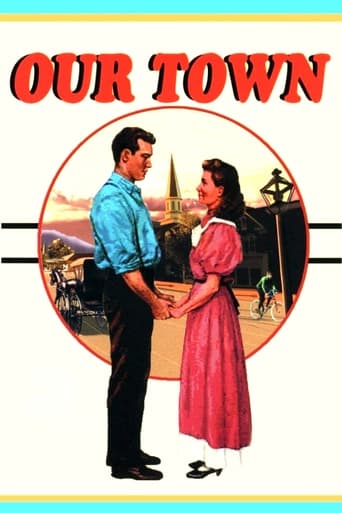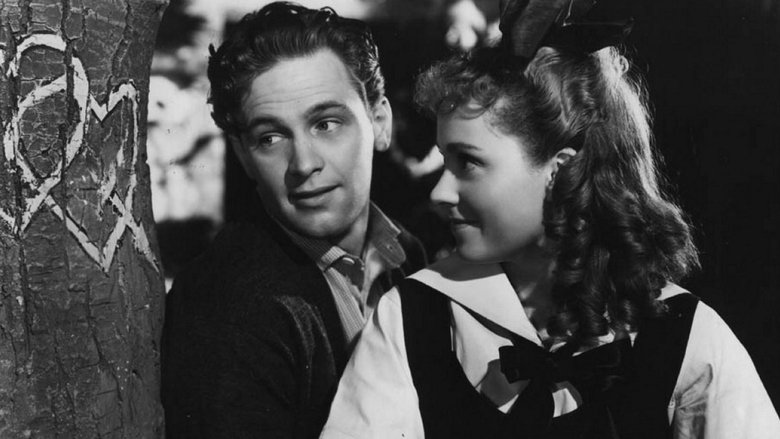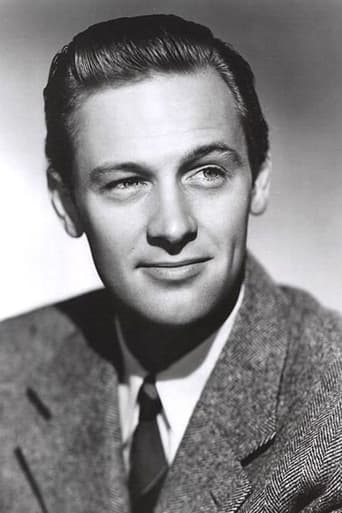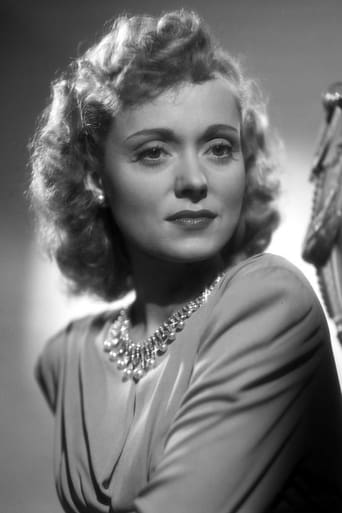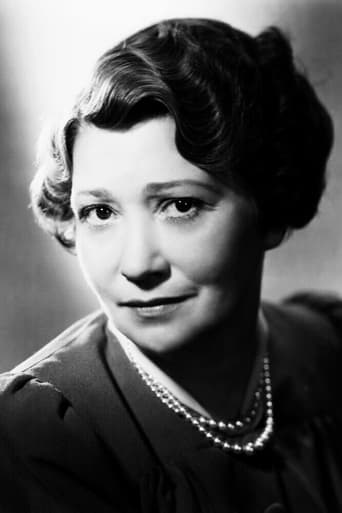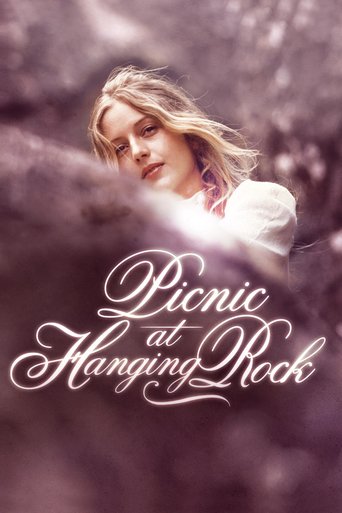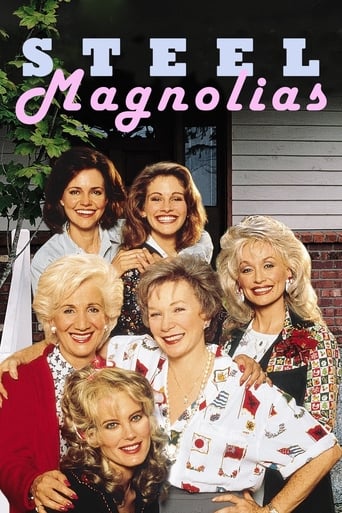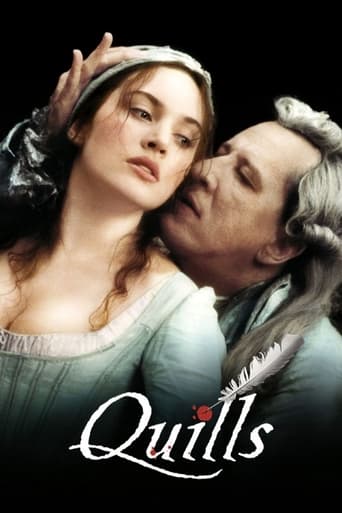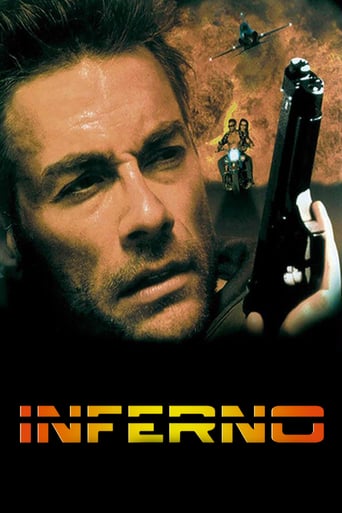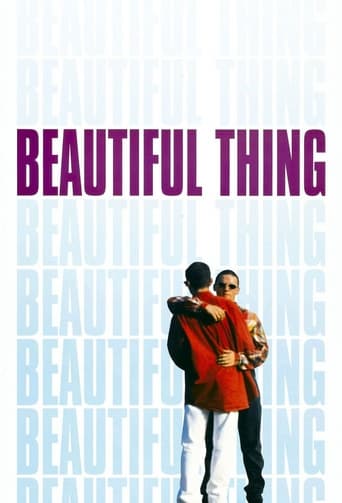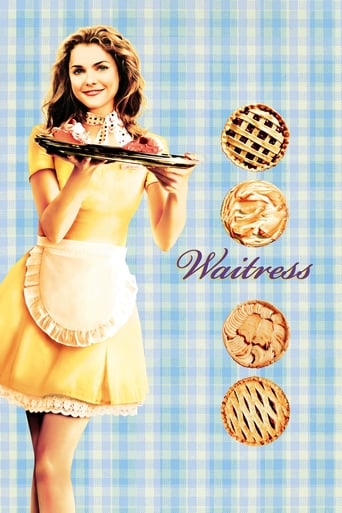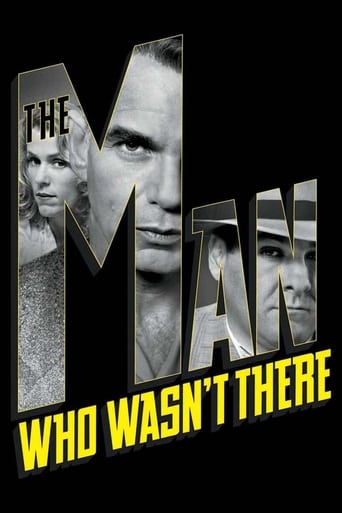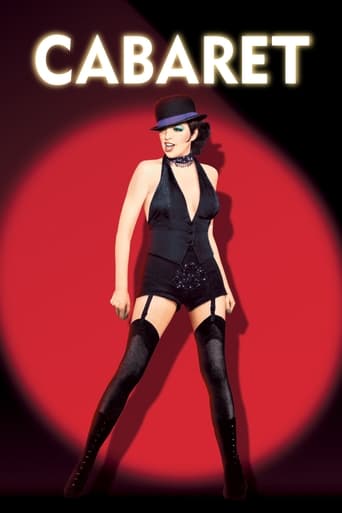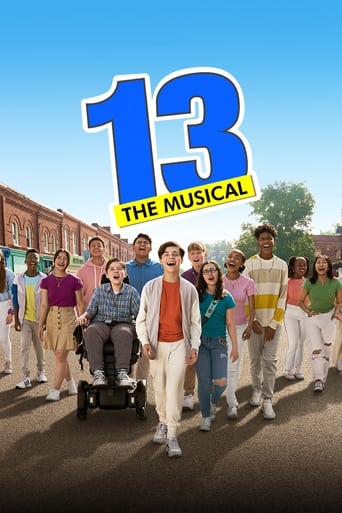Our Town (1940)
Change comes slowly to a small New Hampshire town in the early 20th century. We see birth, life and death in this small community.
Watch Trailer
Cast


Similar titles
Reviews
Fantastic!
While it doesn't offer any answers, it both thrills and makes you think.
There is, somehow, an interesting story here, as well as some good acting. There are also some good scenes
The movie turns out to be a little better than the average. Starting from a romantic formula often seen in the cinema, it ends in the most predictable (and somewhat bland) way.
This week I watched two old classics for the first time. Last night "The Jazz Singer" (the first real talkie), and tonight the 1940 version of "Our Town". I thought I would like "Our Town", and dislike "The Jazz Singer". But, my reaction was just the opposite. "The Jazz Singer" seemed a little show since a good part of the picture was without sound, but it was a good story and the print was excellent for a 1927 film. "Our Town" was a disappointment. The print was poor (despite a restoration; but this was not a big studio production), and I found most of it boring as heck.And yet, it had a superb cast: William Holden and Martha Scott as the high school students. The wonderful Fay Bainter as one of the mothers, and the wonderful Beulah Bondi as the other. Thomas Mitchell as the doctor. Guy Kibbee as the newspaper editor. And the wonderful Frank Craven as the Stage Manager. But, to start off with, Holden and Scott, both fine actors, are visibly WAY TOO OLD for their parts. Everyone else plays their parts well, but -- as another of reviewers pointed out -- maybe this just works much better as a stage play than as a movie. Do you like molasses? The story is as slow as molasses in January. In fact, I felt that only the last 15 minutes was of real interest.Sorry, but I can't really recommend this film. Perhaps it was better as a play.
Grovers Corners, New Hampshire is a small town. The stage manager describes the town and the story of the everyday people. There's a stage manager because this is from the Thornton Wilder play. It maintains its playlike narrative. It starts in 1901 and it's a bucolic scene. It's very much a Norman Rockwell existence. George and Emily are neighbors who finds each other endearing. Then she gets married, has kids, lives and dies.The movie delivers life that is very ordinary and very idealized. That's kind of the point. The point is to see a simple life although it does get very slow at times. The big thing is the third act. In the play, she dies and the audience learns to live everyday to the fullest. It's poignancy is somewhat lost by the fact that Emily has to come back to life in the movie. I've never found "It's all a dream" ever a good idea in a story. This one really strips some of the power from the ending. I wonder if she truly lives everyday to the fullest after the dream. It would be better if the movie tries to center on that point rather than forcing a happy ending.
I read the play in High School in the early 1960s. Along with "Bridge of San Luis Rey." Both, I thought were excellent. There is something about remembering the past, looking at the past, thinking about those who have died, have left our lifes. "Goodbye Mr. Chips." "Chariots of Fire." To recall two famous works.I have never seen the play on stage. And I don't think this movie adaptation is the best format. I do recall seeing a filmed stage performance that was much better--partly because in the end, Emily dies, and partly because a stage set seems to do so much with minimal props; hence, dialogue becomes emphasized.The stage manager breaking that fourth wall and speaking to the audience would be used by George Burns in his TV program. Some moments of the film seemed to be techniques borrowed from Hitchcock. The Aaron Copeland score didn't overwhelm the drama.Wilder apparently approved of this film ending where Emily lives instead of dying, as in the stage play. That adaptation makes the ending corny. Does it detract from the play? I think it does. The whole point of the play is the mundane becomes profound, creating a connection from one human being to another. We connect when we interact and we interact at mundane moments. Sadly, death is one of those mundane (and profound) moments. And not having Emily die, seems to trivialize the play.There was a line toward the end of the movie. Emily says: we interact but don't seem to connect. In this day and age of Facebook, twitter, email, the world wide web--it struck a modern cord--we interact and yet fail to connect.The play works; this move--because Emily doesn't die--fails. "Goodbye Mr. Chips" works because Mr. Chips and the school boys are all exposed for their frailty. Mr. Chips as a barely competent teacher and the students for being prigs, as all students are. And "Mr. Chips" works because he survived and endured for what 50 years--and that scope of time adds to the gravitas that became Mr. Chips. (Had he died early in his teaching career--it would be absurdest drama.) "Chariots of Fire" works because we are looking back from a perspective of the 1970s to the 1920s and memory is emblazoned as the theme of the movie, memory enshrined in trophies and the moral imperative those trophies symbolize.I recommend the movie because it is film adaptation that Thornton Wilder approved. But any filmed stage presentation is better when it adheres to the original Thornton Wilder stage play.
Like "Harvey", "The Second Woman" and "Good Morning, Miss Dove", "Our Town" is set in an underpopulated United States town. Its 1901 look shares features with theirs, as do some of its story elements. Everyone knows practically everyone else; and the very fact that such towns are not the sort of place where important thing happens renders what does happen peculiarly intense, as if it had been placed under a magnifying lens in a powerful light. Author Thornton Wilder and his co-writers here adapt what was a most successful and atmospheric play into a deliberately-paced by I suggest an absorbing screenplay. It has the build perhaps of "Picnic" with the underlying calm of a good early western; only the setting here is Grover Corners, New Hampshire, a decidedly northeastern setting.. Sam Wood directed the film with his usual understated skill; and the writers I believe have retained the best of Mr. Wilder's crisp and often memorable dialogue. The film really divides into three parts--which I would nominate as Introduction, George and Emily and Two Futures(?). George Gibbs and Emily Webb in this film become two of the best remembered characters in U.S. fiction. Sol Lesser produced, with music by Aaron Copland, whose repressed melodies seem to me perfectly to serve this understated masterwork of dramatic construction. Production designer William Cameron Menzies and cinematographer Bert Glennon here tried for an uncompromising atmosphere rather than quaint or merely attractive compositions. Julia Heron did the remarkable interiors, with simple but effective wardrobe by Edward P. Lambert. Among the cast, Martha Scott is wonderfully young and unspoiled, and as Dr. Gibbs, Thomas Mitchell plays with Fay Bainter as his wife more-than-expertly. As their neighbors Editor Webb and his wife, Guy Kibbee is unusually restrained and Beulah Bondi as usual solidly dependable or better in every scene she is given. Stuart Erwin ad Frank Craven (as the stage manager) are quite good, and young William Holden shows to much better advantage than he did in several other films of the period. The supporting cast is not given a great deal to do but they do it very seamlessly, in my opinion. But what one remembers of "Our Town" I assert is its haunting, almost poetic quality. The production's pace is leisurely without being slow, electrically tense without being excited and focused without becoming too sad. The story here is about life, death, youth, love, honesty and fear--and the narrative evokes these emotions in the viewer honestly I claim because it is never pretentious and never striving for the effect that it admirably earns. It is I argue a touching black-and-white classic; and it is quite well acted also throughout._____________________________________

